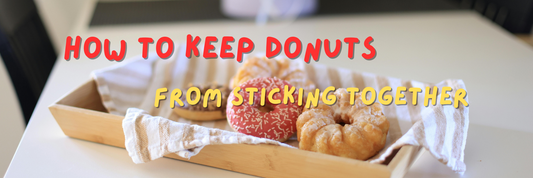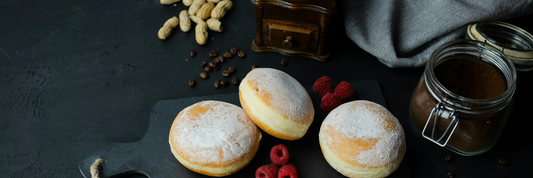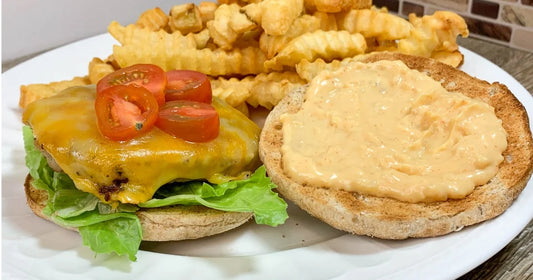Bubble tea has taken the world by storm with its delicious flavors and chewy tapioca pearls. But one question often arises: Does bubble tea have caffeine? The answer depends on several factors, including the type of tea base used, the flavor, and customizations. In this detailed guide, we’ll explore everything you need to know about caffeine in bubble tea.
- Is Bubble Tea Healthy? The Truth About Its Nutrition and Health Impact
- 24 Caffeinated Drinks Ranked by Caffeine Levels – Which Has the Most?
Where the Caffeine in Bubble Tea Comes From
Bubble tea, commonly known as boba, typically has a tea base, which is the key source of caffeine in this beloved beverage. Here's a closer look at the various types of tea used in bubble tea and their caffeine content:
Black Tea
Black tea is a popular choice for bubble tea and is known for its robust flavor. It contains the highest caffeine content, averaging 40–70 mg per cup. This rich dose of caffeine can provide that extra boost many seek in their afternoon pick-me-up.
Green Tea
Green tea provides a milder flavor and a moderate caffeine level, typically ranging from 30–50 mg per cup. It's a great option for those looking to enjoy bubble tea while still keeping an eye on their caffeine intake.
Oolong Tea
Situated between black and green tea, oolong has a unique flavor profile and caffeine content. Its caffeine levels can be variable, but it generally falls somewhere in between those of black and green tea.
Matcha
Matcha, a powdered form of green tea, can be quite high in caffeine, often containing 60–80 mg per serving. Due to its concentration, many people enjoy matcha bubble tea for both its flavor and its invigorating effects.
Coffee-Based Boba Drinks
For those craving a more intense caffeine hit, coffee-based bubble teas are available and can pack a punch with caffeine content ranging from 90–150 mg. This option caters to coffee lovers and offers a uniquely flavorful experience.

What If You Don’t Want Caffeine?
If you're someone who prefers to avoid caffeine or limit its intake, you're in luck! Many bubble tea shops now offer caffeine-free or low-caffeine options, ensuring everyone can find something delicious. Here are some alternatives:
Herbal Teas
Herbal teas like chamomile, hibiscus, and rooibos are naturally caffeine-free, making them a perfect base for bubble tea. Whether you desire a calming drink or a fruity infusion, herbal options are plentiful.
Fruit Teas
Fruit teas often contain flavored syrups without any actual tea, which means they are typically caffeine-free. These colorful and refreshing drinks are a fun way to enjoy bubble tea without worrying about caffeine.
Taro or Milk-Based Drinks
Taro or milk-based options may use no tea at all, offering another pathway for a caffeine-free bubble tea experience. As with any beverage, it's essential to ask your bubble tea shop about the contents of their drinks to ensure they meet your preferences.

Caffeine Comparison Chart (Typical Serving: 16 oz)
|
Drink Type |
Caffeine (approx.) |
|
Black tea boba |
40–70 mg |
|
Green tea boba |
30–50 mg |
|
Matcha bubble tea |
60–80 mg |
|
Coffee-based bubble tea |
90–150 mg |
|
Herbal boba (no tea) |
0 mg |
Caffeine Content in Popular Bubble Tea Flavors
Not all bubble teas have the same caffeine levels. Here’s a look at the caffeine content of different flavors:
Classic Milk Tea
The traditional bubble tea, made with black tea and milk, typically contains 50-70 mg of caffeine per serving.
Fruit-Flavored Teas
Fruit teas often use green or oolong tea bases, leading to moderate caffeine levels:
- Mango Bubble Tea: Usually contains 30-50 mg of caffeine if made with tea.
- Strawberry Bubble Tea: If made with a green tea base, it contains 25-45 mg of caffeine.
- Passion Fruit Bubble Tea: Similar caffeine levels to green or oolong tea (30-50 mg).
Taro Bubble Tea
Taro bubble tea may or may not contain caffeine, depending on its preparation. If made with tea, it contains caffeine; if made with just taro powder and milk, it is caffeine-free.
Matcha Bubble Tea
Matcha is a powdered green tea with higher caffeine levels than regular steeped green tea, containing about 60-80 mg per serving.
Factors Influencing Caffeine Levels in Bubble Tea

Several factors determine the final caffeine content of bubble tea:
Type of Tea Used
Darker teas like black tea have more caffeine than lighter teas like white tea.
Brewing Time and Temperature
Longer steeping times and hotter water extract more caffeine from tea leaves.
Tea-to-Water Ratio
A higher concentration of tea leads to more caffeine in the final drink.
Serving Size
Larger bubble tea sizes (e.g., 24 oz) contain more caffeine than smaller ones (e.g., 12 oz).
Comparing Caffeine in Bubble Tea to Other Beverages
To better understand how bubble tea compares to other drinks, here’s a comparison:
- Bubble Tea: 30-80 mg per serving, depending on the tea base.
- Coffee: 95-200 mg per cup, depending on the type.
- Energy Drinks: 80-150 mg per can.
- Soft Drinks (e.g., Cola): Around 35 mg per can.
Bubble tea typically contains less caffeine than coffee but more than soda.
Health Considerations Related to Caffeine in Bubble Tea

Recommended Daily Caffeine Intake
Health experts suggest a daily caffeine intake limit of 400 mg for adults and 100 mg for children.
Potential Side Effects of Excessive Caffeine Consumption
Consuming too much caffeine can lead to:
- Increased heart rate
- Insomnia
- Jitters or nervousness
- Digestive issues
Sugar Content and Its Impact on Health
Most bubble teas are high in sugar, which can contribute to weight gain and other health issues. Opting for less sugar or unsweetened versions is a healthier choice.
Caffeine-Free and Low-Caffeine Bubble Tea Options
If you prefer caffeine-free bubble tea, consider these alternatives:
- Herbal Tea Bases: Drinks made with chamomile, rooibos, or hibiscus tea are caffeine-free.
- Fruit-Based Bubble Teas Without Tea: Some fruit teas are made with juice and no tea, making them caffeine-free.
- Decaffeinated Tea Options: Some shops offer decaf green or black tea options.
Customizing Your Bubble Tea for Desired Caffeine Levels
Want to control how much caffeine is in your bubble tea? Here are some ways:
- Choose a Low-Caffeine or Caffeine-Free Base (white tea, herbal tea, or milk-based drinks).
- Request Less Tea or a Weaker Brew to reduce caffeine content.
- Opt for Smaller Sizes to naturally lower caffeine intake.
- Avoid Coffee Jelly or Chocolate Additions to keep caffeine levels lower.
Is the Caffeine in Bubble Tea Safe?

For most healthy adults, moderate caffeine consumption up to 400 mg/day is considered safe. However, individual tolerance can vary. If you're sensitive to caffeine, pregnant, or planning to share bubble tea with children, consider these options:
- Smaller cup sizes: Choosing a smaller serving can help reduce your overall caffeine intake.
- Decaf or herbal versions: Opting for decaffeinated teas or herbal blends will eliminate caffeine concerns altogether.
- “Light tea” options: Some shops provide lighter tea blends with reduced caffeine levels, which can be a suitable choice.
Frequently Asked Questions (FAQs)
Does fruit bubble tea have caffeine?
It depends on whether it contains tea. Some fruit bubble teas are caffeine-free if made with juice instead of tea.
Does taro bubble tea have caffeine?
If made with tea, it contains caffeine. If made with just taro powder and milk, it is caffeine-free.
Does mango bubble tea have caffeine?
If prepared with a tea base (e.g., green tea), it has caffeine. Without tea, it does not.
How much caffeine is in bubble tea?
The caffeine content varies from 30 mg (white tea) to 80 mg (matcha or black tea) per serving.
Are there caffeine-free bubble tea options?
Yes, herbal tea-based or fruit-based bubble teas without tea are caffeine-free.
Conclusion
Bubble tea often contains caffeine, but the amount depends on the tea base, preparation, and customizations. If you’re sensitive to caffeine, you can choose low-caffeine or caffeine-free options like herbal teas or fruit-based drinks. Being mindful of caffeine levels helps you make the best choice for your preferences and health.







